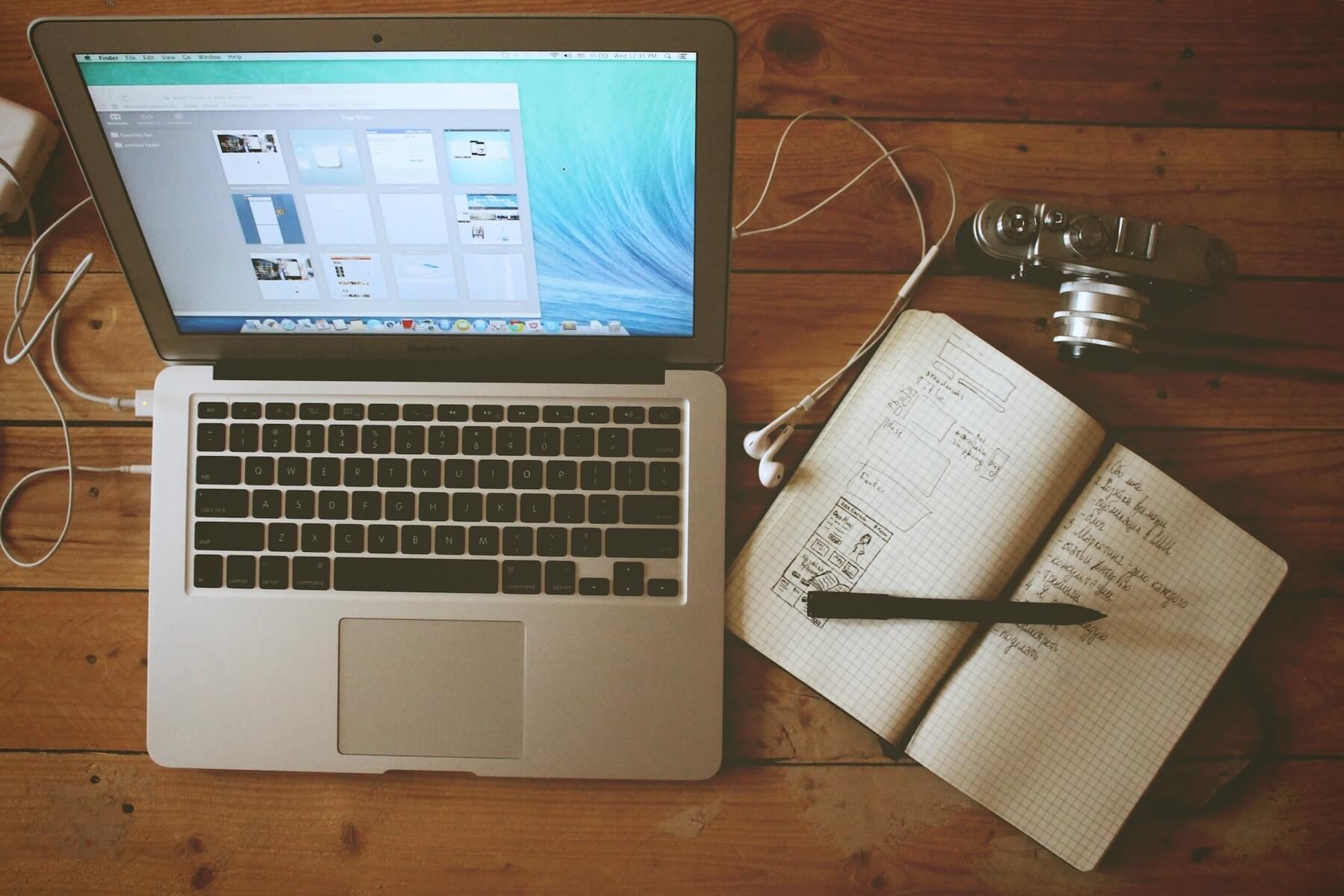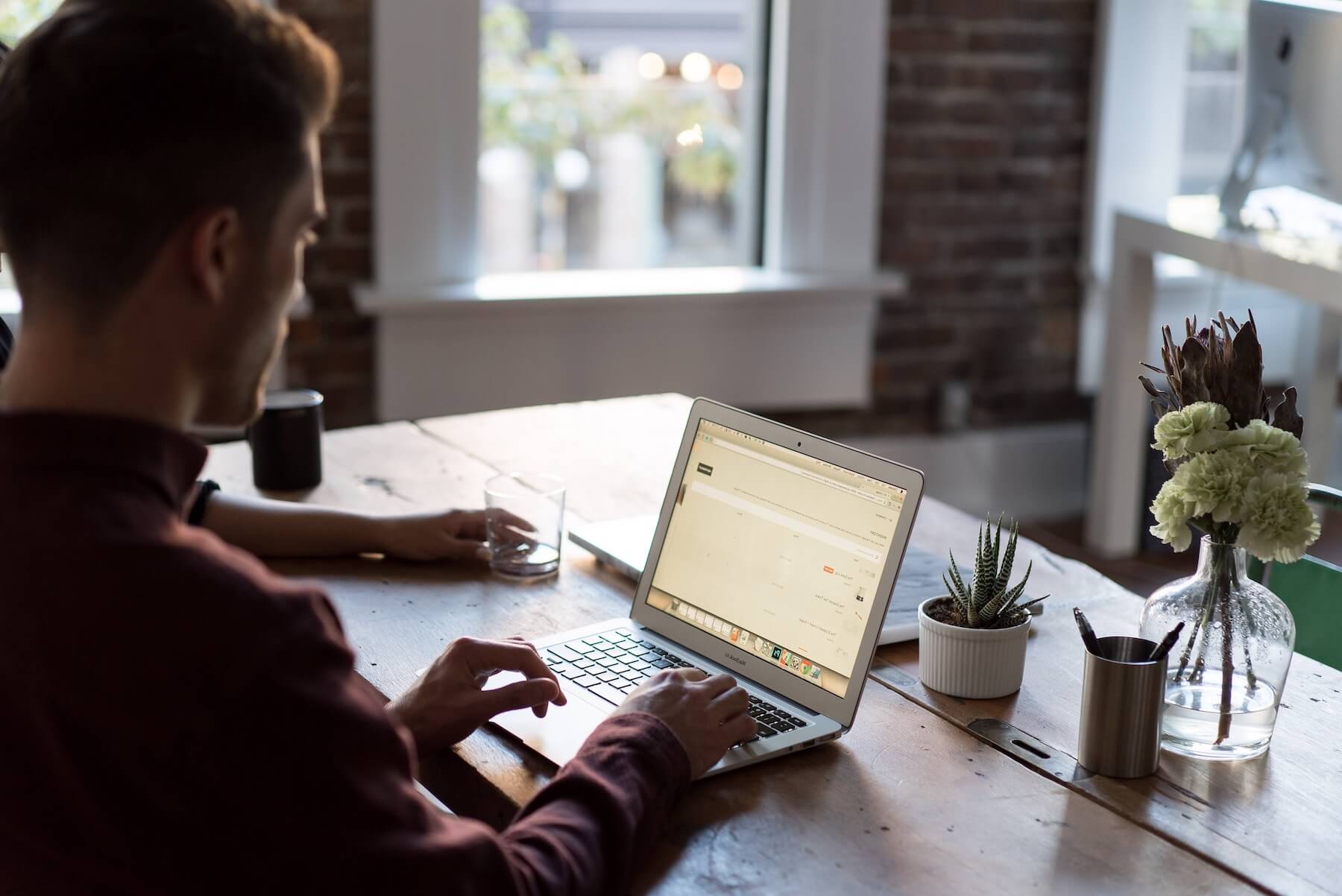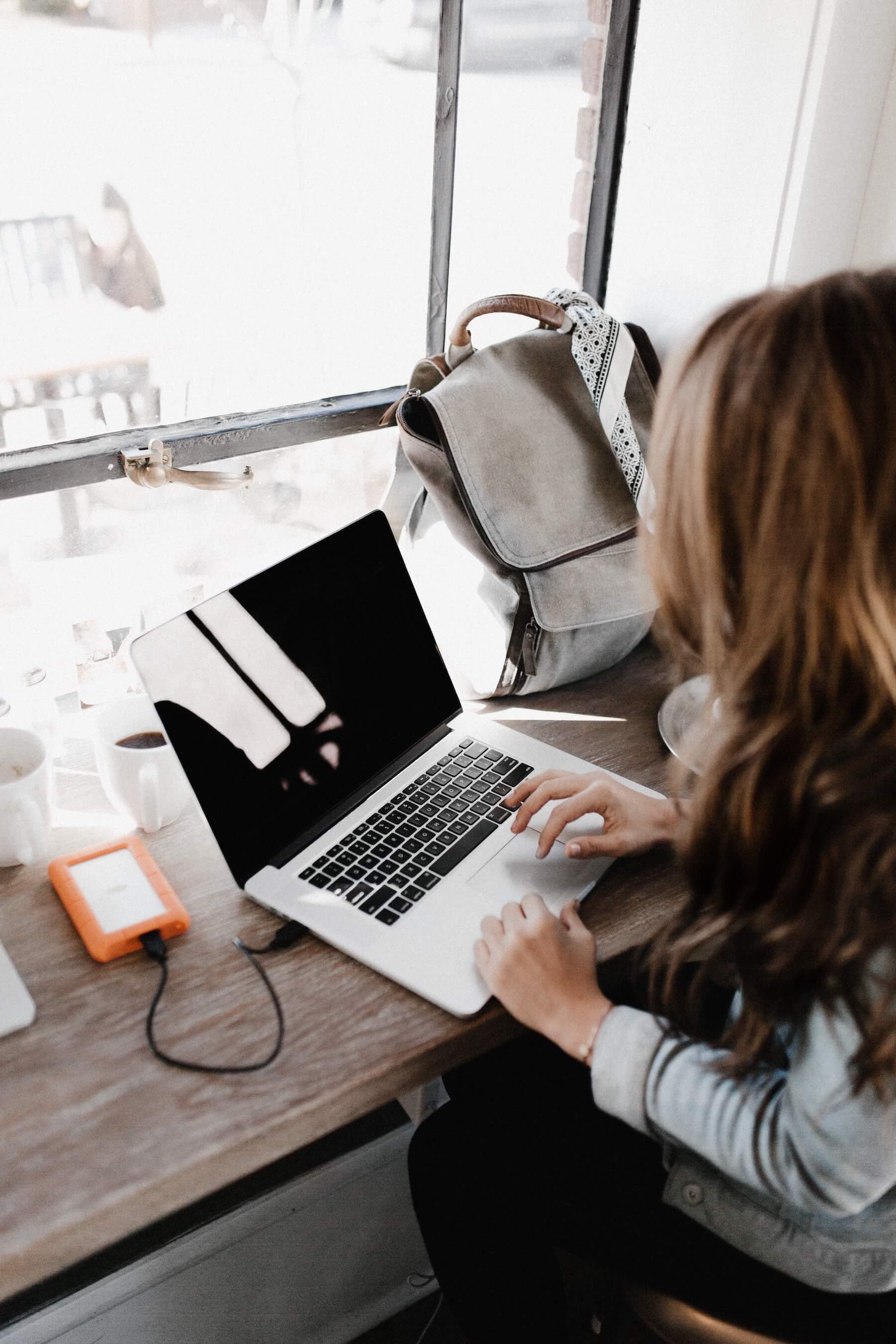It’s 2019. Everything is evolving around us faster than you can say “Digital Branding”. So how do you keep up?
Especially as a freelance web designer.
Despite the obvious perks, freelancers must be flexible and adaptable if they want to stay competitive and stand out from the crowd, but how exactly do you accomplish this?
Being able to stand out and remain competitive is one of the most important drivers of success in today’s digital society.
And make no mistake. It's hard.
In fact, for those working in the digital space, I’d go so far as to say that it doesn’t even matter what kind of work you do, or even what you’re good at. These factors alone won't guarantee success. With the explosive growth in such a competitive market, today you need to broaden your focus beyond your skill set in order to succeed.
Today, the saturated web design industry demands that freelancers wave their arms just a little higher than everybody else, in order to attract clients and maintain a competitive edge.
Your expertise and creative prowess could be second-to-none, but ultimately, that’ll only take you so far. If nobody knows you’re out there, your skills will be lost to the growing swarm of competition.
But once you’ve nailed your personal brand, how exactly do you build upon it?
You become the go-to choice for your clients, building repeat business that lasts.
Impressing your clients will also lead to growing referrals—and ultimately—greater opportunity for growth.
So as a freelance web designer, how do you position yourself to become the next big name? The go-to choice for clients seeking repeat business? How do you differentiate yourself and, in your clients’ eyes, become the best at what you do?
And what can you expect from freelancing as a career path? Is it viable and worth it over the longer term, or should you settle instead for working for the man in the suit?
 To answer these questions and give you an exclusive insider view, we contacted three successful freelance web designers and asked them to share their experiences and unearth the secrets to positioning yourself for differentiation and success.
To answer these questions and give you an exclusive insider view, we contacted three successful freelance web designers and asked them to share their experiences and unearth the secrets to positioning yourself for differentiation and success.
In this blog post, we'll be drawing upon the stories and experiences of top freelancers to highlight the pros and cons that come with web design as a career in 2019.
Designer Martin Waring shares his views
We asked Martin Waring, a web designer from York, about his experiences as a freelancer.
"Coming from a career in a corporate IT world I have spent my life working with technology. In my previous jobs, satisfying though they may have been, it was always a bit difficult to describe to family and friends exactly where that satisfaction came from; a job well done, £x million pounds worth of business brought into the company maybe but difficult to show anything tangible.
"Being a freelance web designer I can now say to family and friends ‘have a look at this new site I’ve just built’. I can get opinions on colour palettes, fonts, usability etc and get excited about having something tangible to show for all the hard work I put in.
"I love the creative process, especially when the business I’m building a site for, lends itself to having a website that is just a little bit different to the normal corporate look.
"When I first started out building websites I used a lot of templates or themes but fairly quickly became frustrated with the constraints these imposed. I bought dozens of themes in the hope that the next one would satisfy my need to be more creative.
"It was only when the tools I use developed enough to allow me to start with effectively a blank page that the creative juices really started to flow. It's like sitting in an art class (which I do most weeks) with a blank piece of paper and some drawing/painting materials and the freedom to express myself in colour and line.
"I may see a wonderful site out there on the web and think how could I build that. As a freelance developer I have the freedom to try and replicate it which then gives me a project base from which to include some of these ideas in my next project. The design ideas build and evolve over time.
"As with everything else I do with my time I’m constantly learning and growing and web development is the same. A lot of the attraction for me comes from the learning process.
"The joys of finding new ways to do things, new ideas about design and bouncing ideas around with other developers around the world makes the work so much fun. Having an international forum of people like me from California, Germany, France, New Zealand, Thailand and the UK to name but a few places is a great asset when you are resolving issues or learning how to use the tools effectively.
"In my corporate career I made a personal reputation based on a no-bullshit approach to my business users. I find the same approach works very well with my web site clients. I never promise anything that I can’t deliver and if I’m not sure about something, I’ll say I’m not sure but I’ll try and find out.
"This approach is most relevant when talking to clients about optimising their site to get to the first page on Google. Its not an exact science and the only people who really know how Google algorithms work are Google. Some clients are better than others at understanding their part in this. Some take on board the idea that with lots of well written content that engages the reader, their website will be more interesting and consequently rank better.

"It can be frustrating when clients understand the concepts but still expect something for nothing and do little to help play their part in building a great site that performs well. Sometimes I just have to be patient and encourage them over time to provide new text, new images or to help me shoot a video for the site.
"It’s very rewarding for me when a client does get it. When they understand what makes an interesting site that engages the customer, that explains in easy to read language what it is being offered and gives the customer a real sense of who they are dealing with if they pick up the phone.
And to put that all together: rich engaging content in a beautifully designed site, performing well and you’ve got a site to be proud of that benefits the client, their customers and is very rewarding for me too."
—Martin Waring
www.websitesyork.co.uk
Designer Liam Pedley shares his views
Liam Pedley heads up a small web design and digital marketing group in Leeds, England. He's kindly shared his experiences of freelance web design, along with some great tips that will benefit those just entering the market.
Question: Liam, what first interested you in web design?
Answer: "I first got into web design by taking on additional responsibilities at a previous employer and throughout the many obstacles and headaches I grew to love the design and problem solving involved. Without trying to sound pretentious, I enjoy the fact that web design is one of the rare instances where science meets art. You have all of the analytics, optimisation and ongoing tweaking alongside the creativity."Question: How did you first get into freelancing? Was there a big ‘a-ha!’ moment?
Answer: "I was unfortunately made redundant at my then current employer so that was significant motivation. I’d been planning to look at web design as a side hustle, as being very risk averse I did not enjoy the idea of losing a regular salary. When I was made unemployed, 2 months of soul searching ensued that ended with me deciding to give freelancing a go. I’ve never looked back!"Question: Which aspect of the web design process do you most enjoy?
Answer: "I particularly enjoy getting to know a wide range of clients whether they work for an international brand or a small family run local business. I’ve learnt so much about so many different industries over the past few years, just through working on many varied projects. I also enjoy the initial design process - I am never happier than when faced with a blank canvas and an existing brand and tasked with bringing something to life."

Question: What would you say have been the biggest challenges you’ve faced as a freelance web designer?
Answer: "Loads! When you go it alone there is so much to learn - marketing, legal considerations, bookkeeping, sales etc!
For me the biggest challenge has been managing my time effectively since I am in charge of literally every aspect of my business. Some days it’s simply overwhelming when you have emails coming in thick and fast, meetings to attend, admin to catch up on and phone calls.
"Another challenge can be separating your work and personal life which can be super tricky at times. If you’re not careful you can get into the habit of getting started late in the morning and then having to work late into the evening. It can be a little difficult to ensure this doesn’t happen regularly.
"Equally, since your business rests sole on you, if you need to take time off for illness your pipeline gets severely effected. It’s pretty tough to go on holiday without relying on somebody to chase your leads, complete your projects and manage your business while you’re away."Question: How have you found the process of managing multiple clients? Has it been daunting or challenging at times? If so, how have you modified your communication with clients to make the whole process easier for them?
Answer: "It can tough managing so many clients at once, especially when you can’t really afford to turn down work incase you have a quiet couple of months. I try and set clear boundaries from the beginning - I don’t tend to meet face to face unless it is necessary, I don’t take phone calls in the evening and encourage the use of email as much as possible.
"I utilise a number of productivity tools like Trello to manage project timelines and use a great email scheduling tool so that if I want to work on a weekend I can keep this a secret and not leave myself open to out of hours business calls."Question: In terms of ongoing clients, do you tend to offer follow-up services, support and maintenance for their websites? Or do the majority of your clients prefer you to sign and hand-off completed websites to them?
Answer: "It’s a bit of a mix on this one, although I’d have to say that most clients I work with don’t want anything to do with their digital activities and are therefore happy to outsource web management, digital marketing and anything else. I offer these and a range of other digital marketing services which are obviously great financially but more importantly allow me to stay in touch with clients and see how their business grows in response to my support and services. Web care, hosting and marketing retainers are perfect for regular income and keep me in the forefront of my client’s minds whenever new opportunities present themselves.
"On the other hand, some clients want to be responsible for their website (either due to an interest in digital or a financial constraint) and I am happy to provide training to allow this to happen."Question: If there are 3 tips you would offer to web designers who are just starting out their freelancing career, what would they be?
Answer:
- Branding and office setup: "Work out early on whether you want to be sell yourself or build a brand as there’s pros/cons for both. Think about how well you can scale since it’s an absolute pain to rebrand when you consider the SEO and other implications. Similarly, invest in a virtual telephone number and virtual (or actual) office address as early as possible and build your SEO campaigns around these."
- Documents: "Get your legal and other documents ironed out as soon as possible. You may be inclined to take on your first few projects informally however sooner or later you’ll need to fall back on clauses within your contract and terms. Putting in the time now will prevent any issues in the future."
- Finances: "Maintain good bookkeeping from the very start. I suggest investing in an accountancy app that can link to your bank and track your mileage - there’s a few out there that come highly recommended. Manually creating invoices takes a lot of the joy (and accuracy) out of the job!"Question: How has freelancing changed your lifestyle? Do you find you have more flexibility, and does this present its own challenges?
Answer: "The best thing about freelancing is that I have no daily commute! I instantly removed the stress and time it takes to get to and from work when I became a freelancer. I honestly think it is worth becoming a freelancer for this reason alone. On a similar note, I have a young family and this job allows me to spend much more time with them and the dogs than I otherwise would be able to.
"Contrary to expectations I find that I do not have as much flexibility as I thought I would as a freelancer. Of course I’m able to manage my own time and this affords more flexibility than with an employer, however due to my workload I am less and less able to take an afternoon off here and there and regularly find myself needing to work weekends and evenings to keep up with everything. "Clients expect to be able to contact you within business hours so I don’t see this changing until I am able to scale my operation."Question: Since web design and development is constantly changing and evolving, how have you managed to stay sharp and continue learning during your freelancing career?
Answer: "My ethos of never turning down any work regardless of the technical complexity allows me to continue to develop my skills. Even if a project terrifies me due to a lack of knowledge I still take it on and work out how to deliver an effective solution. When you’ve got a lot of projects running simultaneously it’s sometimes difficult to take time out to develop your knowledge or skills in other areas so I try and incorporate this into my paid work (obviously I don’t charge for any hours learning).
"I also find it really helpful to be part of online communities such as Facebook groups. You can access a wealth of information as well as help others. The best way to learn anything is to teach others as they say."—Liam Pedley
https://liampedleydesign.co.uk
Designer Tracey Rickard shares her views
Tracey Rickard has been building and designing websites since 2005. She's also a WordPress specialist and works with clients across the United Kingdom and the rest of the world.
Question: What first interested you about web design?
Answer: "I first became interested in web design when I needed a website for a holiday rental property and couldn’t afford to pay anyone to do it. I was forced to build my own website!"Question: How did you first get into freelancing? Was there a big ‘a-ha!’ moment?
Answer: "I left my career in sales and marketing to move to France and renovate a property. I had worked from home for many years, so that came naturally. Once I had built my website, someone else asked me to build one and it went from there."Question: Which aspect of the web design process do you most enjoy?
Answer: "Creating the designs in Photoshop."Question: What would you say have been the biggest challenges you’ve faced as a freelance web designer?
Answer: "Not being able to switch off."Question: How have you found the process of managing multiple clients? Has it been daunting or challenging at times? If so, how have you modified your communication with clients to make the whole process easier for them?
Answer: "I have a set process and that works well. My clients contact me by email and to do I have not had any major issues managing multiple clients."Question: In terms of ongoing clients, do you tend to offer follow-up services, support and maintenance for their websites? Or do the majority of your clients prefer you to sign and hand-off completed websites to them?
Answer: "I offer follow up services, maintenance and support. It is free for six months when they get their new site and then they pay after that."

Question: If there are 3 tips you would offer to web designers who are just starting out their freelancing career, what would they be?
Answer:
- "Make sure you allow time for yourself, working 24/7 will make you fed up and you will fail."
- "Read everything you can, follow experts in your field and read everything they post, learn something new every day."
- "Don’t work for nothing, if you don’t value yourself your clients will not value you."Question: How have you found the process of managing finance and income as a freelancer?
Answer: "No problem, it is always a bit scary being self-employed but to date I have been very lucky."Question: How has freelancing changed your lifestyle? Do you find you have more flexibility, and does this present its own challenges?
Answer: "I had flexibility before as I had always worked from home, I wouldn’t change that now. The only thing that is a bit of a pain is when the family decide they want to talk to you when you are working. You need to shut yourself away!"Question: Since web design and development is constantly changing and evolving, how have you managed to stay sharp and continue learning during your freelancing career?
Answer: "I read constantly. I read WordPress blogs, follow RSS feeds and read design blogs to make sure I stay up to date with trends. It is a pain sometimes but it keeps you on top of your game."—Tracey Rickard
https://traceyrickard.co.uk
Conclusion
So, we’ve covered a lot, and hopefully it’s been helpful. It’s always great to have an insider’s perspective, and freelance web design is no different.
In summary, while freelancing as a web designer can prove an enjoyable, flexible career path, it’s important to weigh up the potential challenges you might encounter.
Freelancing will always be a personal learning experience, and it is indeed different for everybody.
But being equipped with key knowledge and information before you begin your journey will surely lessen any growing pains. Many thanks to Martin, Liam, and Tracey for sharing their experiences with freelancing as web designers.
Has this blog post altered your perception of freelance web design?
Let us know in the comments.
